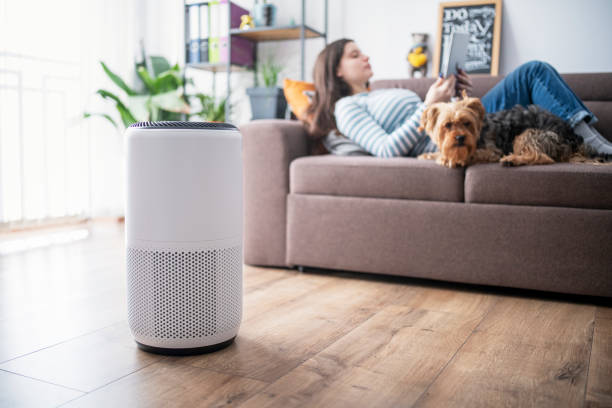Air purifiers have become an increasingly popular household item, as more and more people are becoming aware of the dangers of poor indoor air quality. These devices work to remove pollutants and allergens from the air, making it safer and healthier to breathe. However, with so many different types and models of air purifiers on the market, it can be difficult to know which one is right for your home. In this blog post, we'll take a closer look at some of the factors you should consider when choosing an air purifier for your home.
Types of Air Pollutants and How to Eliminate Them
First and foremost, it's important to understand the types of pollutants that are present in your home. Different air purifiers are designed to remove specific types of contaminants, so it's important to know what you're trying to eliminate from your indoor air. Common pollutants include dust, pet dander, mold spores, and volatile organic compounds (VOCs) from cleaning products and building materials. If you're particularly concerned about allergies or asthma, you may want to look for an air purifier that is specifically designed to remove pollen and other allergens from the air.
Another important factor to consider when choosing an air purifier is the size of the space you need to purify. Air purifiers are rated by the room size they're suitable for, so it's important to choose a model that is powerful enough to clean the air in your specific room or area. Some air purifiers are designed for larger spaces and others are better suited for smaller rooms. When in doubt, it's always better to choose a more powerful unit, as it will have the ability to purify the air in a larger space.
Air purifiers come in several types of filter styles and technologies, including HEPA filters, activated carbon filters, and UV-C light. Each has their own merit and weakness. For example, HEPA filters are highly efficient at removing particles from the air, but they don't remove chemicals or gases. Activated carbon filters can help to remove VOCs and other chemical pollutants, but they don't remove particles as effectively as HEPA filters. UV-C light air purifiers are great for killing microorganisms and bacteria. It's best to have a combination of technologies to have a comprehensive air cleaning solution.

It's also important to consider the noise level of an air purifier before making a purchase. Some models are designed to be very quiet, while others may be quite loud. If you plan to use the air purifier in a bedroom or other space where noise is a concern, you may want to look for a model with a lower decibel rating. Similarly, if you're looking for an air purifier that you can run all the time, look for one that has a low power consumption.
Finally, you'll want to consider the cost of the air purifier. Prices can vary widely, with some models costing a few hundred dollars and others costing much more. While it may be tempting to choose a cheaper model, keep in mind that a more expensive air purifier may be more effective at removing pollutants and will likely last longer than a cheaper model.
In conclusion, choosing the right air purifier for your home can be a bit of a challenge, but by considering the types of pollutants you're trying to remove, the size of the space you need to purify, the types of filter technology, noise level, and power consumption, you should be able to find an air purifier that meets your needs. By investing in a good air purifier, you can breathe easier knowing that the air in your home is clean and healthy.











